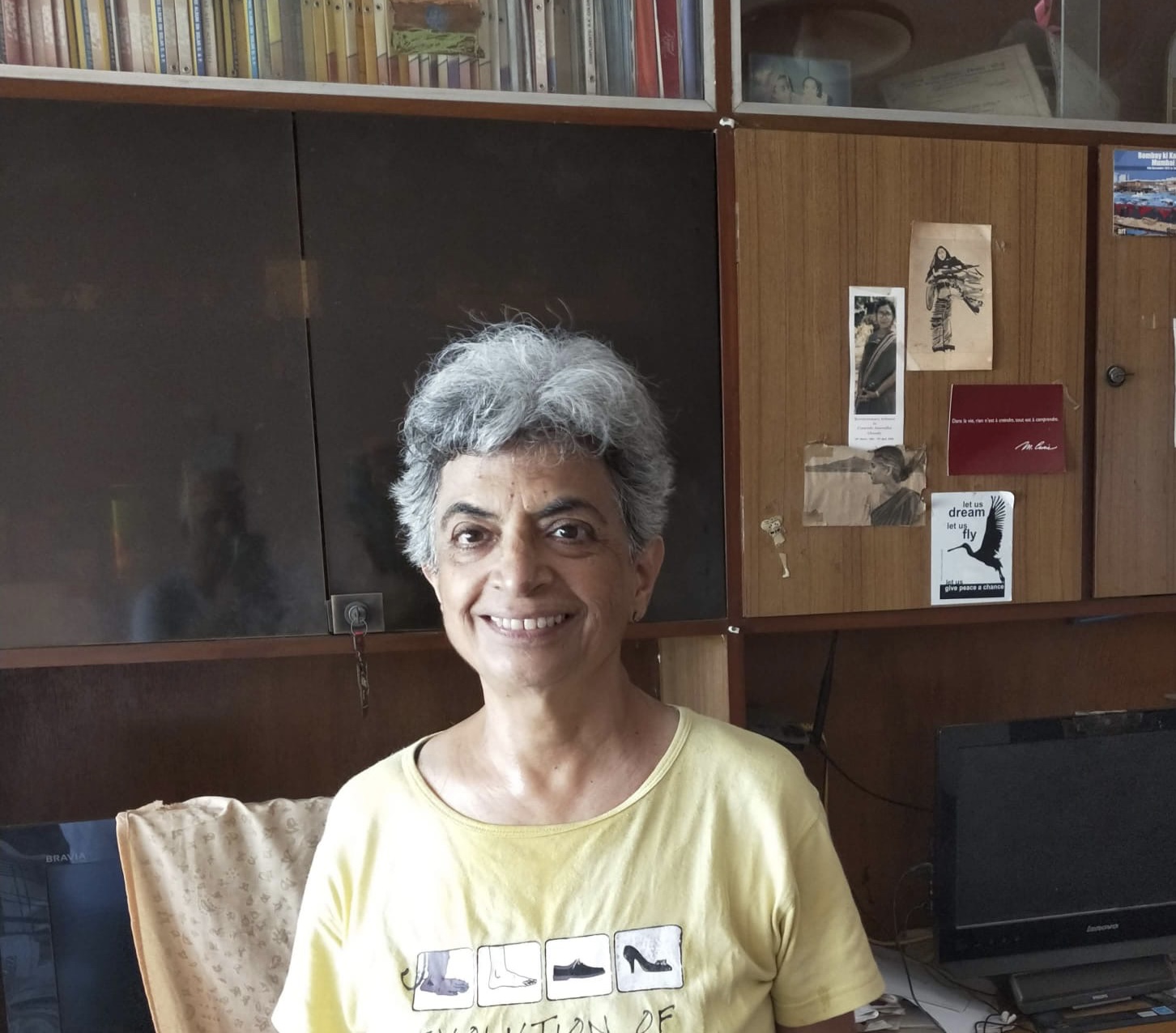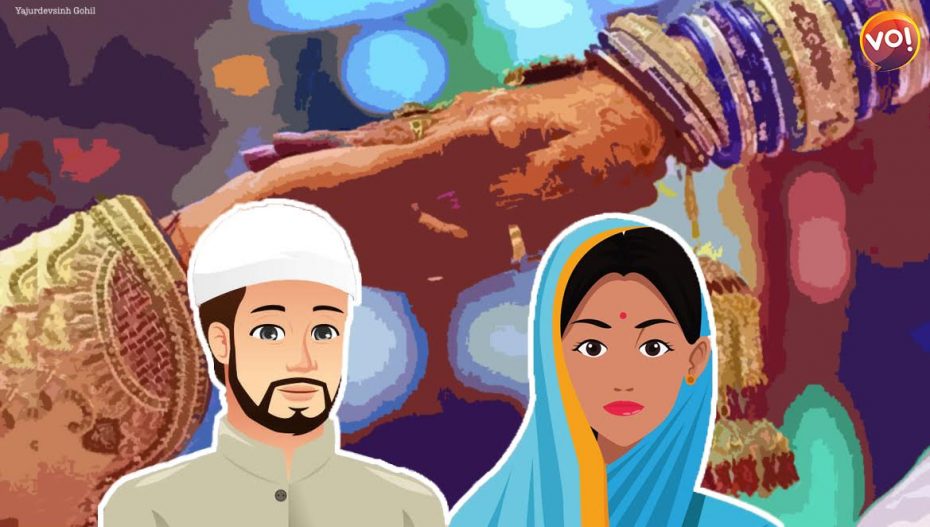Section 5 of the Gujarat Freedom of Religion Amendment Act 2021gives those in power more power over religious conversions
On August 19, the Gujarat High Court stayed Section 5 of the state’s anti-conversion law. On August 26, Pratapsingh Jadeja, Gujarat’s Home Minister, declared that Section 5 forms the ‘core’ of the amended new law.
He was right.
Section 5 of the Gujarat Freedom of Religion Amendment Act 2021 makes it mandatory for anyone wanting to convert another, to first take permission from the District Magistrate, who can take up to a month to investigate and then give or refuse permission. The person who has converted must also inform the DM within 10 days of the conversion.
The Gujarat government amended its existing anti-conversion law in April this year with just one purpose: to stop the increasing phenomenon of Hindu girls marrying Muslim boys and converting to Islam, or what Hindutvawadis call “love jihad”. The term is even mentioned in the law’s Statement of Objects and Reasons. Until now, the only way Hindutva groups could stop such marriages was by muscle power whenever they found out. With BJP governments having been elected in many states in 2017, a new, seemingly foolproof method has been devised: a law to stop such marriages. With supportive governors appointed by the BJP government at the Centre, these laws have received immediate assent.
But for such laws to be effective, two requirements are key: first, the authorities must have prior information about such marriages, second, these authorities must have the power to prevent them.
Hence, Section 5 of the Gujarat law.
Identical sections can be found in the laws enacted in UP and MP, and earlier, in Uttarakhand and Himachal Pradesh.
In including this crucial section, these governments have deliberately ignored one important fact: this provision of giving advance notice to the authorities was struck down almost a decade ago as ultra vires of the Constitution by the Himachal Pradesh High Court. Justice Deepak Gupta, who struck it down, went on to grace the Supreme Court.
In 2012, Justice Gupta found this provision in the 2006 Himachal Pradesh Freedom of Religion Act violative of the fundamental right to privacy and freedom of religion. “A person not only has a right of conscience, the right of belief, the right to change his belief, but also has the right to keep his beliefs secret. Why should a human being be asked to inform the authorities that he is changing his belief? What right does the State have to direct the convertee to give notice in advance to the District Magistrate?’’ asked the court. The court also felt that making this information public could be dangerous for the convertee.
Despite this, last year, the BJP-led Himachal Pradesh government replaced its 2006 law with a new one that included this provision.
Even where no conversion is involved, as in the Special Marriages Act 1954 (SMA), similar concerns of privacy and safety have led to courts ruling against provisions that make it public that a couple is planning to marry. Secrecy is crucial for couples wanting to enter inter-faith marriages, given the strong parental and social opposition they face. The Special Marriage Act is meant for such couples, as under it, marriage is performed as a civil ceremony, requiring no religious rituals. But not only is a month’s notice necessary under the Act, the Marriage Officer is required to display it at a prominent place in his office, in case anyone wants to object to the marriage.
In Delhi, such notices used to be sent to the parents of the prospective couple, till the Delhi High Court ruled against this practice in 2009.
Hindutva vigilantes keep a watch on such notices and try to foil the marriage, as happened recently even in Mumbai, which is famous for the protective anonymity it gives to lovers. Having read one such notice, four strangers barged into the home of a Hindu family in a posh suburb to convince the parents not to allow their daughter to marry a Muslim. The father, who had until then been supportive, changed track. The girl, however, complained to the police, who let off the four with a warning.
Interestingly, in January this year, the Allahabad High Court said that publishing such a notice inviting objections is no longer mandatory under the SMA. The couple could decide whether it should be published or not.
Now the provisions themselves have been challenged. Last year Delhi-resident Nida Rahman, who married her classmate Mohan Lal under the SMA despite parental disapproval, moved the Supreme Court asking that these provisions be struck down as violative of fundamental rights to life and liberty and to equality. The Central government has, not surprisingly, defended this section in its affidavit.
This provision is the main reason why prospective couples don’t opt for marriage under the SMA. Staying on in their hometowns during the 30-day notice period is risky in case someone informs their parents; running away is equally risky as the girl’s parents can file a complaint against the man. It just seems simpler for one of them to quietly convert to the other’s faith.
But the new “love-jihad’’ laws make it impossible to keep such conversions private.
The theory of “love jihad’’ views women as foolish creatures, easily misled, who need to be “protected’’. The women are not seen as autonomous citizens but as belonging to the community. There is no place in this theory for the concept of privacy.
The Gujarat government will now move the Supreme Court against the High Court’s stay. Will the Supreme Court uphold the right to privacy?















Well researched article. Thank you